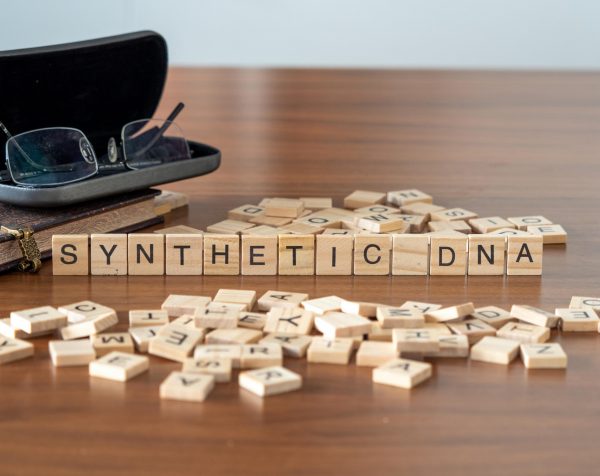Up until a few years ago, the only genetically engineered products in the marketplace were agricultural crops—corn, soybeans, cotton, canola, and a few others. These were developed using transgenic technology—taking genes from one species and inserting them into the DNA of a crop such as corn or soybeans.
But in recent years, products made using newer genetic engineering techniques, such as synthetic biology, RNA interference (RNAi), and gene editing have started to appear on the market. These so-called “GMO 2.0” techniques are being used to create agricultural crops and inputs, food products and ingredients, personal care products, and supplements.
And, while the “older” GMOs were regulated to a certain degree by U.S. government agencies, these new GMOs are entering the marketplace without regulations or labeling and pose similar risks to consumers as the older GMOs do.
Some biotechnology companies are even claiming that products of these new GMO techniques are non-GMO.
Synthetic biology
Synthetic biology involves altering the DNA of microorganisms such as algae, bacteria, and yeast so they produce compounds through a fermentation process. Syn-bio companies are producing food flavors, CBD, vitamins, collagen, probiotics, and milk and egg proteins, among others. Evolva has created a synthetic biology form of vanillin, an alternative to natural vanilla extract. Perfect Day uses genetically engineered yeast to produce proteins similar to those found in cow’s milk with the aim of producing vegan milk. Brave Robot Ice Cream uses Perfect Day’s GMO-derived proteins in its ice cream product. The most well-known syn-bio food product is the Impossible Burger, which is produced using a genetically engineered substance called “heme,” which makes the fake burger appear to bleed like real meat.
Syn-bio company Geltor recently announced the release of its first syn-bio collagen for the food and beverage industries. Geltor has already produced several syn-bio products for use in the skin care and cosmetics industry.
One of the biggest players in synthetic biology is Boston-based Ginkgo Bioworks, which is developing medicines, food ingredients, and microbes for agriculture. Ginkgo, whose mission is to “make biology easier to engineer” has established a partnership with Motif FoodWorks to create meat, dairy, and plant-based proteins using synthetic biology.
Ginkgo has also established a syn-bio joint venture with Bayer called Joyn Bio to create microbes that feed nitrogen to crops like corn, aiming to reduce the amount of environmentally-damaging nitrogen fertilizer used by farmers. Another company, Pivot Bio, has developed two products, containing syn-bio produced microbes that also aim to feed nitrogen to corn, wheat, and sorghum crops.
Based on outdated biology paradigm
As with older GMO technologies, there are risks with synthetic biology. The technology could create secondary substances such as metabolites or different levels of compounds that could have negative impacts. For example, there is the 1989 disaster caused by Japanese company Showa Denko, which genetically engineered a microorganism to produce the supplement tryptophan. But the synthetic biology process also created toxic compounds that caused eosinophilia myalgia syndrome, a deadly disease that killed 60 people and disabled hundred more, according to John Fagan, chief scientist of Health Research Institute.
An underlying problem with the techniques is that they are based on an outdated paradigm of how biology and nature function.
“One of the dangers with synthetic biology is that it pretends that life is a linear, predictable system that you can engineer as if you can re-engineer a car or computer and that DNA is just a code,” says Jim Thomas, program director at the ETC Group. “But all those metaphors are falling apart in the biological sciences.”
There are also social concerns. Companies like Evolva that make synthetic biology flavors like vanillin are hurting the market for natural vanilla produced by farming communities in Madagascar.
“*These companies are trying to disrupt those markets and take that value,” Thomas says. “If you can produce vanillin, then you will start affecting the supply chains and livelihoods of vanilla farmers.”
Lack of regulation, non-GMO claims
There is no regulation of syn-bio products including those produced by gene editing. The U.S. Department of Agriculture considers these products “unregulated” so they can enter the market much faster than older GMOs, which must go through a regulatory process that can take several years.
To avoid the negative publicity associated with older GMOs, syn-bio companies are trying to avoid using the term “GMO.” They insist the new technologies are “new breeding techniques” and “sustainable solutions.” Genetically engineered bacteria and yeasts are called “microflora.”
“The overriding drive in development is to be able to use the techniques without saying they are GMO,” Thomas says.
Some companies are even calling their syn-bio products “non-GMO.” Calyxt has labeled oil made from its gene edited high oleic soybeans as non-GMO. Cibus claims that its gene-edited herbicide-tolerant canola is non-transgenic. On its website Brave Robot ice creams claims that its ice cream “does not contain GMOs.”
“No one in the world believes gene-edited products are non-GMO except the companies trying to sell them,” says Hans Eisenbeis, communication director at the Non-GMO Project, which has been tracking the new GMO products.
The Non-GMO Project has a research department that tracks new GMO technologies.
“In the past five years, we have tracked a 250% increase in biotech companies—many of them small start-ups hoping to gain access to natural and organic consumers,” Eisenbeis says. These number 460, according to the Non-GMO Project.
According to Eisenbeis, the biggest challenge is that neither food brands nor consumers are aware of how widespread the new GMOs are.
“They are already slipping into the ingredient and supply chain. Because they aren’t regulated or labeled, the Project is one of the only entities tracking them and preventing them from entering the non-GMO food stream,” he says.
Fortunately, Fagan has developed a test to detect new GMOs in food and supplements.
“It means that there are tools available to keep GMOs—including gene edited GMOs—under control in the organic, non-GMO, and natural industries,” he says.









